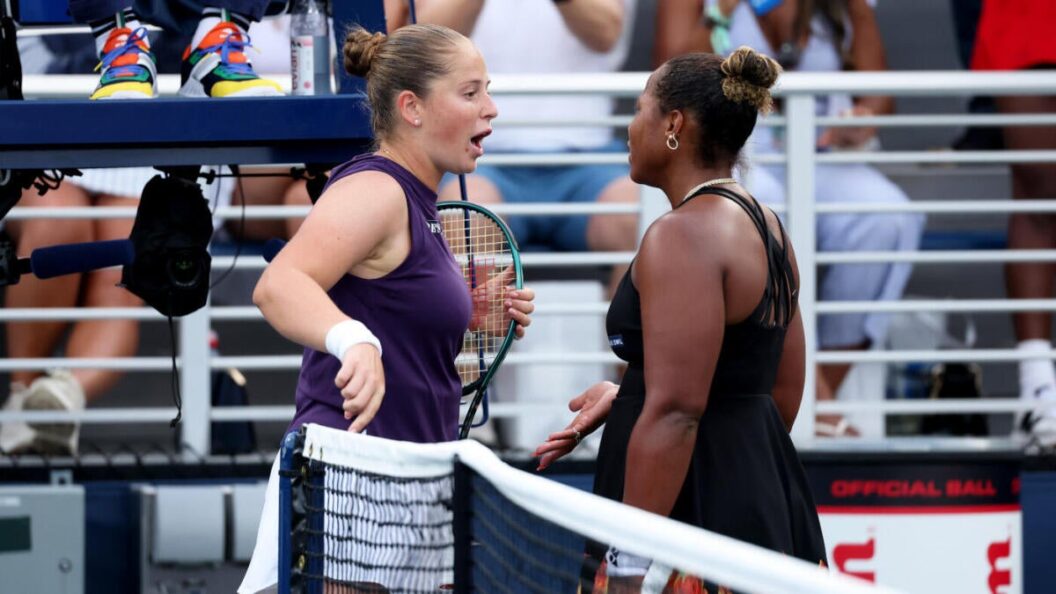Tensions Rise at the US Open: Ostapenko’s Post-Match Controversy
The 2023 US Open has seen its fair share of drama, but a heated confrontation between Jelena Ostapenko and Taylor Townsend has captured significant attention. After Ostapenko lost to Townsend in the second round, their interaction turned contentious, leading to accusations and a public apology from Ostapenko.
The Confrontation
Following a straight-sets victory over Ostapenko, Townsend faced an unexpected verbal barrage from the Latvian player. Ostapenko accused Townsend of lacking "class" and "education" during a post-match exchange, reportedly fueled by frustration over a disputed net cord incident in crucial moments of the match. Townsend responded to Ostapenko’s comments, stating, "People get upset when they lose. Some people say bad things."
Background Context
The match’s tense atmosphere was exacerbated by the implications of racial dynamics, as Townsend, a Black American athlete, hinted that Ostapenko’s remarks had a racial undertone. On Thursday, Townsend addressed this complexity after her successful first-round doubles match. "Sometimes, I feel like in society, especially people of color, we are expected to be silenced," she shared, underscoring the importance of speaking out for her community.
Apology and Its Reception
In the wake of the incident, Ostapenko took to social media to issue an apology, albeit one that some found lacking in sincerity. She attributed her comments to language barriers, explaining that her use of the word "education" was in reference to tennis etiquette rather than a personal critique of Townsend. "I understand how the words I used could have offended many people beyond the tennis court," she stated. Notably, her apology did not mention Townsend directly, raising eyebrows among fans and commentators.
Impact on Subsequent Matches
As the controversy unfolded, Townsend continued to showcase her skills on the court by defeating fifth-seeded Mirra Andreeva in her next match, advancing to the round of 16 for the first time in her Grand Slam singles career. This win positions her to potentially face fellow competitor Barbora Krejcikova, which could further amplify the spotlight on her performance and response to Ostapenko’s remarks.
Reflections on the Incident
The altercation serves as a reminder of the intense emotions that can surface in high-stake sports environments, especially during major tournaments like the US Open. Tensions in competitive sports often reveal deeper societal issues, including race and sportsmanship. As spectators digest this incident, it raises questions about athlete conduct and the cultural dimensions of sports. Both players’ reactions highlight the intricate relationship between competition, identity, and societal expectations.
The fallout from this confrontation is likely to resonate beyond the US Open, sparking discussions about etiquette in sports and the intersection of race and competition. As tennis enthusiasts await Townsend’s upcoming matches, the implications of Ostapenko’s comments and her subsequent apology remain pivotal topics within the broader narrative of sportsmanship and representation in athletics.









